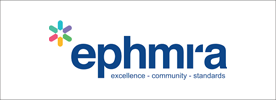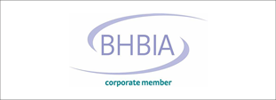
Market research is a vital tool in the pharmaceutical industry, helping companies gain valuable insights into the needs and opinions of HCPs and patients. However, when research is funded by pharmaceutical companies, conflicts of interest can arise, raising ethical concerns about bias and objectivity. If not managed properly, these conflicts can compromise the credibility of research findings and damage trust between the industry, HCPs and the public. To ensure integrity, compliance and transparency, we must take proactive steps to address these challenges.
Recognising Conflicts of Interest in Pharma Market Research
Conflicts of interest in market research typically occur when financial, professional or personal factors have the potential to influence research outcomes. One common example is the payment of financial incentives to HCPs or patients for their participation. While compensation is standard practice, if payments are excessive, they can create bias, leading to responses that may unintentionally favour the sponsor’s products. Another risk area is study design, when questions are framed in a way that guides participants towards particular answers and the integrity of the research could be compromised. Similarly, the way data is interpreted and reported can be influenced by a sponsor’s interests, particularly if there is pressure to present findings in a way that supports a commercial agenda.
The Importance of Transparency in Sponsorship
One of the most effective ways to mitigate conflicts of interest is through full transparency. Pharmaceutical companies must clearly disclose their involvement in research projects, ensuring that all stakeholders, research participants, regulatory bodies and the public are aware of the study’s funding source. This transparency helps to prevent undue influence and reassures participants that the research is being conducted with integrity. Engaging independent third-party research firms can further enhance credibility by ensuring that sponsors do not have direct control over the study’s execution or outcomes.
Fair and Ethical Compensation for Participants
Ensuring that participant compensation aligns with fair market value is another critical factor in managing conflicts of interest. Payments should fairly reflect the time and effort required without creating an incentive for biased responses. Overcompensation can lead to ethical concerns, particularly if HCPs feel pressured to participate or provide favourable feedback. Regulatory frameworks, such as the Sunshine Act in the United States, Loi-Bertrand and Loi anti-Cadeaux in France and EFPIA guidelines in Europe, set clear expectations around payment disclosures, helping to maintain ethical standards in industry-sponsored research.
Maintaining Objectivity in Study Design and Data Collection
To ensure research remains objective, study design and data collection must be free from undue sponsor influence. Independent research firms should lead these processes, ensuring that surveys or interviews are structured to capture genuine insights rather than promote a particular agenda. Framing survey questions should be done extremely carefully as even subtle changes in wording can introduce bias. Ethical review boards and compliance officers play a key role in scrutinising study designs to ensure they meet high ethical standards.
The Role of Informed Consent in Ethical Research
Informed consent is essential to ethical research. Participants must fully understand the purpose of the study, the role of the sponsor and any potential conflicts of interest before agreeing to take part. Clearly written consent forms should outline the sponsor’s involvement and provide participants with the opportunity to ask questions. Ensuring that participation is entirely voluntary, without any pressure or coercion, reinforces trust and ethical integrity.
Complying with Industry Regulations and Best Practices
Pharmaceutical companies operate in a highly regulated environment and compliance with legal and ethical guidelines is non-negotiable. Regulatory agencies such as the FDA, EMA and MHRA set clear expectations for ethical conduct in market research. Additionally, industry organisations such as ESOMAR, Insight Association, EphMRA and BHBIA provide best practice frameworks that support transparency and integrity. Implementing internal compliance training programs for research teams and sponsors helps reinforce these standards, ensuring that all stakeholders understand and adhere to ethical research principles.
Conclusion
Industry-sponsored market research is a valuable tool for gathering insights that can drive innovation and improve patient outcomes. However, managing conflicts of interest is critical to ensuring that research remains ethical, unbiased and credible. By prioritising transparency, maintaining independent oversight, providing fair compensation and adhering to strict regulatory standards, pharmaceutical companies can uphold the integrity of their research. Ethical market research not only benefits the industry but also fosters trust with HCPs, patients and regulatory bodies, ultimately supporting better healthcare decisions and outcomes.





